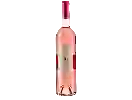
Winery ChantecotesRosélia Côtes du Rhône
In the mouth this pink wine is a powerful.
This wine generally goes well with pork, poultry or rich fish (salmon, tuna etc).
Taste structure of the Rosélia Côtes du Rhône from the Winery Chantecotes
Light | Bold | |
Dry | Sweet | |
Soft | Acidic |
In the mouth the Rosélia Côtes du Rhône of Winery Chantecotes in the region of Rhone Valley is a powerful.
Food and wine pairings with Rosélia Côtes du Rhône
Pairings that work perfectly with Rosélia Côtes du Rhône
Original food and wine pairings with Rosélia Côtes du Rhône
The Rosélia Côtes du Rhône of Winery Chantecotes matches generally quite well with dishes of pork, rich fish (salmon, tuna etc) or shellfish such as recipes of macaroonade from sète, hawaiian poke bowl or shrimp curry and coconut (thailand).
Details and technical informations about Winery Chantecotes's Rosélia Côtes du Rhône.
Discover the grape variety: Chaouch
The certain origin is not known. We can simply say that this variety was once widely cultivated in Turkey, it is still found in Spain, Italy, Greece, Hungary, Macedonia, Romania, Dalmatia, Serbia, Ukraine, Bulgaria, Russia, North Africa, ... in France it is almost unknown except for some amateur gardeners. Note that it can sometimes be confused with the Beirut date palm, they have the same two synonyms rozaki and afuz ali.
Informations about the Winery Chantecotes
The Winery Chantecotes is one of of the world's great estates. It offers 29 wines for sale in the of Rhône méridional to come and discover on site or to buy online.
The wine region of Rhône méridional
Côtes du Rhône is a regional appellation in the Rhône Valley in eastern France. It applies to red, rosé and white wines, and includes more than 170 villages. The area follows the course of the Rhône southward for 125 miles (200 km) from Saint-Cyr-sur-le-Rhône to Avignon. A small portion of the wines in the appellation are white wines.
The wine region of Rhone Valley
The Rhone Valley is a key wine-producing region in Southeastern France. It follows the North-south course of the Rhône for nearly 240 km, from Lyon to the Rhône delta (Bouches-du-Rhône), near the Mediterranean coast. The Length of the valley means that Rhône wines are the product of a wide variety of soil types and mesoclimates. The viticultural areas of the region cover such a distance that there is a widely accepted division between its northern and southern parts.
The word of the wine: Melchior
Bottle with a capacity of 18 litres.














